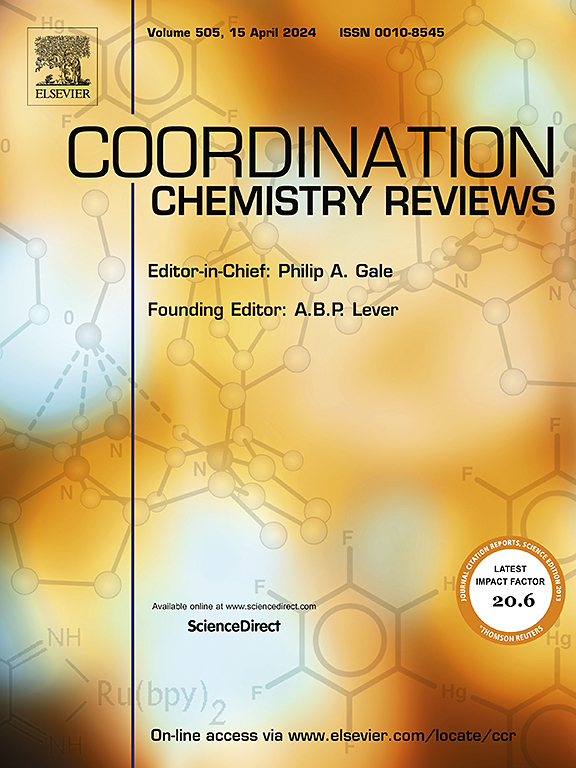Progress of supported Pt-based catalysts for electrochemical methanol energy conversion
IF 20.3
1区 化学
Q1 CHEMISTRY, INORGANIC & NUCLEAR
引用次数: 0
Abstract
Electrochemical methanol energy conversion based on direct methanol fuel cells (DMFCs) and methanol-assisted water splitting (MAWS) for hydrogen generation has received increasing attention. However, the slow kinetics of the methanol oxidation reaction (MOR), a key challenge that limits their efficiency and performance, remains a major obstacle to large-scale commercial applications. Supported platinum (Pt)-based electrocatalysts have shown significant potential to enhance MOR performance by leveraging coordination synergistic effects between the catalyst and support materials. This review provides an in-depth overview of the recent progress in developing supported Pt-based electrocatalysts for methanol energy conversion systems. We first outline the established mechanism of methanol oxidation and highlight recent advancements in situ techniques that provide deeper insights into the MOR process. Then, the emphasis on support impact on catalytic activity and mechanism, various modification strategies and preparation methods for developing supported Pt-based catalysts were highlighted. The practical applications of Pt-based catalysts in DMFCs and MAWS were presented, with a particular focus on different support types, including carbon-based, non‑carbon-based, and hybrid materials. The review also provides a comprehensive understanding of the catalytic challenges and opportunities, offering valuable insights and guidance for the future development of supported Pt-based electrocatalysts in methanol-relevant energy conversion systems.

求助全文
约1分钟内获得全文
求助全文
来源期刊

Coordination Chemistry Reviews
化学-无机化学与核化学
CiteScore
34.30
自引率
5.30%
发文量
457
审稿时长
54 days
期刊介绍:
Coordination Chemistry Reviews offers rapid publication of review articles on current and significant topics in coordination chemistry, encompassing organometallic, supramolecular, theoretical, and bioinorganic chemistry. It also covers catalysis, materials chemistry, and metal-organic frameworks from a coordination chemistry perspective. Reviews summarize recent developments or discuss specific techniques, welcoming contributions from both established and emerging researchers.
The journal releases special issues on timely subjects, including those featuring contributions from specific regions or conferences. Occasional full-length book articles are also featured. Additionally, special volumes cover annual reviews of main group chemistry, transition metal group chemistry, and organometallic chemistry. These comprehensive reviews are vital resources for those engaged in coordination chemistry, further establishing Coordination Chemistry Reviews as a hub for insightful surveys in inorganic and physical inorganic chemistry.
 求助内容:
求助内容: 应助结果提醒方式:
应助结果提醒方式:


